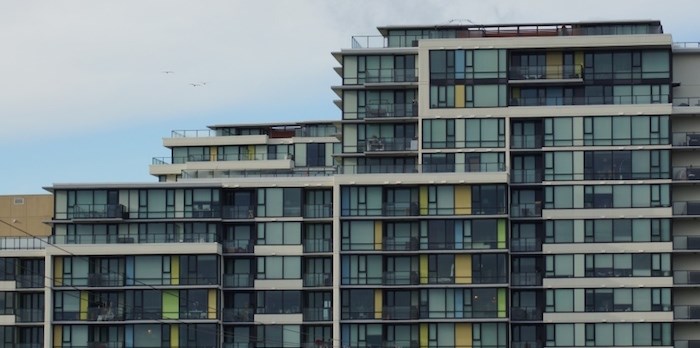Richmond residents might complain the city isn’t doing enough to build affordable housing for its residents, but at least one federal program – worth $148 million – was off the table for the City of Richmond.
This was the “cities stream” of the Rapid Housing Initiative, to create 440 new housing units in B.C., which only went to four municipalities: Vancouver, Greater Victoria, Burnaby and Surrey.
At a recent meeting, Joe Erceg, general manager of planning and development with the city, repeated a message he’s relayed before to city council that federal and provincial money is needed to build affordable housing in Richmond.
“The fundamental problem is there’s not enough senior-level money and the bulk of the money that has been allocated is not available to communities like Richmond,” Erceg added.
A case in point was this Rapid Housing Initiative which Richmond wasn’t eligible for, “by decree of the federal government,” Erceg said, adding the city has been lobbying the local MP to add Richmond to the list of eligible cities.
The City of Richmond clarified “discussions with government have not offered significant insight” why Richmond didn’t qualify for this housing fund.
At the meeting, Coun. Carol Day mentioned the fact Regina, Sask., has large swaths of rental housing and questioned why Richmond couldn’t do that as well.
In response, Erceg said the city’s been “leveraging” developers to build market rental and affordable rental housing, but that’s not enough.
“Notwithstanding the high-level comments made by senior governments, it’s (because) there is insufficient federal and provincial money going to the funding of affordable housing,” Erceg said in response to Day’s inquiry.
According to the Canadian Mortgage and Housing Corporation (CMHC), these four cities in B.C. were chosen based on a high level of renters in “severe housing need,” according to census data, and the number of people experiencing homelessness.
The methodology to decide who received the funding was developed with the Federation of Canadian Municipalities, CHMC explained.
The Rapid Housing Initiative was created during the pandemic to respond to the housing crisis, according to a joint statement from CMHC and the Federal Minister of Housing.
However, CMHC clarified, a second program, the “projects stream,” worth $242 million, was an open application process, allowing all cities, provinces, territories, non-profit groups and Indigenous communities to apply for funding.
(The News has asked for clarification on the criteria used to determine who received this “projects stream” funding.)
Another $1.5 billion has been approved in this year’s federal budget to continue the Rapid Housing Initiative to build 4,500 new housing units across Canada. Twenty-five per cent of this housing fund will go toward women-focused housing.
Projects need to be completed within 12 months and can include new construction or renovating an existing non-residential building or an uninhabited building. No one can be evicted in the process.
The housing units must remain affordable for 20 years.



